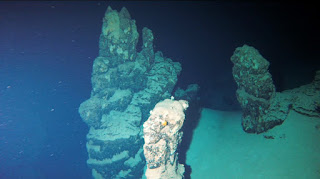The definition of EXPLORERS
Explorers
Explorers are a product of high dopamine activity (associated with curiosity and spontaneity).
Explorers are curious, creative, adventurous, impulsive and self-reliant. They are also known for high energy, novelty, risk and pleasure seeking ways, and not being easily swayed by opinions.
In one sampling (39,913 profiles), Dr Fisher found 26.0% were Explorers.
The gender difference was27.1% for men and 26.1% for women, but that was statistically significant due to the large sample size. It is small, though, still, and not surprising because the dominant chemical, dopamine, is a neurotransmitter.
The Explorers want the stimulation and the novelty of the big cityrer.
The high-dopamine type is comfortable in every well trained diver.
You can just look at the way some divers move underwater. It’s beautiful.
Not surprisingly, they are a fairly creative bunch, as Explorers tend to be.
The top word used by Explorers in their Chemistry.com profiles is adventure. (178,000 profiles sample) Robert Schumann Explorers live a rich and varied life because they’re such energetic, even restless people who regard time in a different way than most others. They move fast. Their natural curiosity draws them to all kinds of different situations where they can come up with new ideas, practice their theories and generate new thoughts.
Shifting their attention from one problem to another is not a problem for them, they are always looking for more thrills and excitement in their lives. Their adventurous streak sometimes makes them take unnecessary risks, leaving them prone to breaking the law more often than other types would.
But with a little help from the people around them, they can also make excellent divers – they certainly have the hunger and devotion that this job needs.
Explorers are very likable people with generous minds and happy attitudes to life and people around them. They have a playful nature, they can be sensual and enjoy life to the point of being hedonistic. At the same time, they are unpredictable and hard to rely upon, which does not make them good marriage material. They are not prone to routine and don’t tolerate boredom very well. Their impatience can make them selfish companions as they don’t generally bend themselves to anyone’s rules.
Explorers are drawn to other Explorers. In a survey of 28,128 anonymous Chemistry.com members who were paired up with another, Male Explorers preferred female Explorers 41% of the time while preferring Directors least at 16%. Female Explorers had an even greater preference at 46%, but was pretty much even on preference for any of the other three categories. That general non-preference towards the other categories can be attributed to the Explorer’s flexibility, curiosity and willing to try just about anything once.
The proposed reasoning behind Explorers being drawn to other Explorers because they crave excitement. They want optimism, impulsivity and curiosity in their partner. The Explorer/Explorer match is generally strong because Explorers love adventure and want a partner to share their spontaneity. But this match can have problems. Since both are willing to tolerate risks, two Explorers can find themselves in disastrous situations. And Explorers are not usually very introspective so the pair often avoids difficult discussions.
However, the Explorers, typical of their adventurous nature, have a completely different way of propagating their genes compared to the other matches that are done through stable family units. Says Dr Fisher, [what] I find curious from an evolutionary standpoint is the attraction between Explorers. Who’s going to take care of the baby if they’re both on their way up Mount Everest, or in the bar taking drugs, or in the library reading Spinoza?
But people who express a lot of dopamine, the sensation seekers, tend to marry more often. I began to see a different Darwinian strategy—different babies with different partners. That’s very adaptive, because they’re creating more genetic variety in their young.





0 σχόλια :
Post a Comment
Note: Only a member of this blog may post a comment.